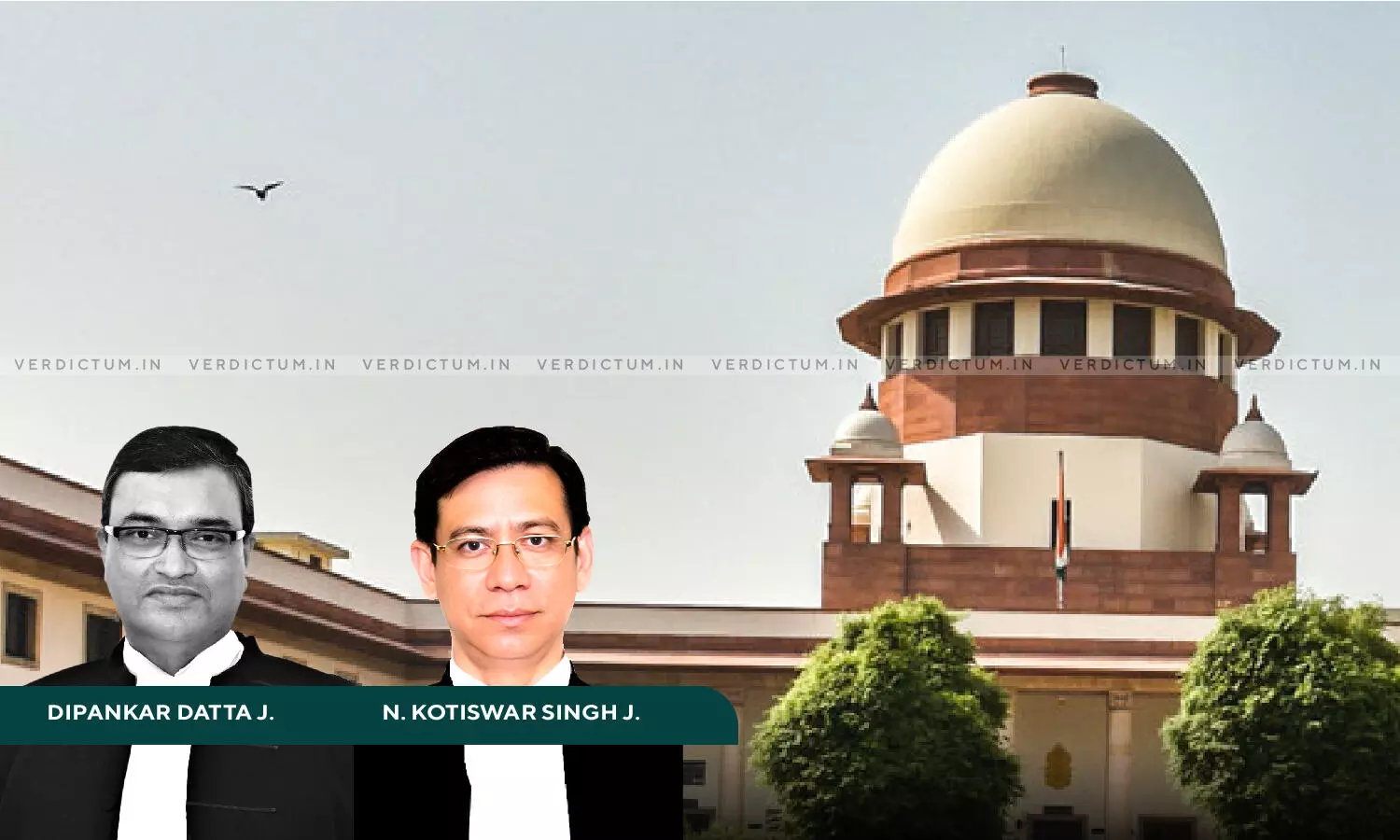
Courts Must Not Act As Recovery Agents For Realization Of Dues Of Complainant While Deciding Bail Matters: Apex Court
 |
|The Supreme Court has observed that the Courts while exercising jurisdiction to grant bail/pre-arrest bail, are not expected to act as recovery agents for the realization of the dues of the complainant from the accused.
The Appellant challenged the order passed by the Patna High Court granting pre-arrest bail to the appellant and imposing a condition, inter alia, to deposit 25% of Rs. 20,00,000 before the District Court.
The Bench of Justice Dipankar Datta and Justice Nongmeikapam Kotiswar Singh observed, “The High Court, in our considered view, ought to have examined the question of grant of bail without being swayed by the submission on behalf of the appellants. Having regard to the settled principles of law laid down in the decisions referred to above, inter alia, to the effect that the courts, exercising jurisdiction to grant bail/pre-arrest bail, are not expected to act as recovery agents for realization of dues of the complainant from the accused, the High Court ought to have independently apply its mind and arrive at a conclusion as to whether a case for grant of bail had been made out or not on settled parameters, irrespective of whatever submission had been advanced on behalf of the appellants.”
AOR Shantanu Sagar and Advocate Prabhat Ranjan Raj appeared for the Appellant whereas AORs Azmat Hayat Amanullah and AOR Smarhar Singh appeared for the Respondents.
The matter arose after a complaint was registered for the offences punishable under Sections 406, 420, 467, 468, 471/34 of the Indian Penal Code, 1860 (‘IPC’) but cognizance has been taken under Sections 406, 420, 468 and 471/34 of the IPC.
The Counsel for the Respondent/complainant submitted that since the High Court was invited by the appellants to impose a condition for depositing 25% of Rs.20,00,000 the impugned order did not merit interference.
“The direction for deposit is in the teeth of a plethora of decisions of this Court. We can profitably refer to a few of them, viz. Ramesh Kumar vs. State (NCT of Delhi); St. George Dsouza vs. State (NCT of Delhi) and Dilip Singh vs. State of M.P. & Anr.”, the Court said.
The Court, therefore, accepted the appeal and set aside the impugned order.
The High Court had ordered, “In case, the petitioners furnish a receipt with respect to 25% amount out of total consideration amount of rupees twenty lakhs before the District Court then, the provisional bail of the petitioners shall be made absolute on such terms and conditions, as the court below deems it fit and proper.”
Considering the nature of the dispute between the parties, which was civil, the High Court had also said that the order was conditional, considering the fact that in the meantime, the parties must resolve the dispute amicably by either agreeing to cancel the sale deed already executed in favour of the complainant or by jointly filing title suit to claim title over the land in question before a competent civil court within a further period of six months and file joint affidavit to that effect before the District Court.
Recently in another matter, the Supreme Court had observed that it was shocking to see trial courts putting conditions partaking the nature of recovery, despite the Court, earlier, depreciating the practice of reducing criminal law into money recovery proceedings. The Petitioner in that matter had challenged the order passed by the Patna High Court refusing to quash the order whereby she was directed to pay 20% of the total amount involved in a Section 138 case to the complainant as a condition for granting bail to her in the case.
Cause Title: U.N. Gupta@Udhav Narayan Gupta v. The State of Bihar
Appearances:
Appellant: AOR Shantanu Sagar, Advocates Prabhat Ranjan Raj, Anil Kumar, Gunjesh Ranjan, Vaibhav Jain and Manoneet Dwivedi.
Respondents: AOR Azmat Hayat Amanullah, Smarhar Singh, Advocates Kumar Parimal, Nitya Sharma, Rebecca Mishra, Neha Buttan, Ashish Kumar Patel, Siddharth Bhardwaj, Yukta Garg, Ravish Kumar Sinha, Khushboo Takyar.